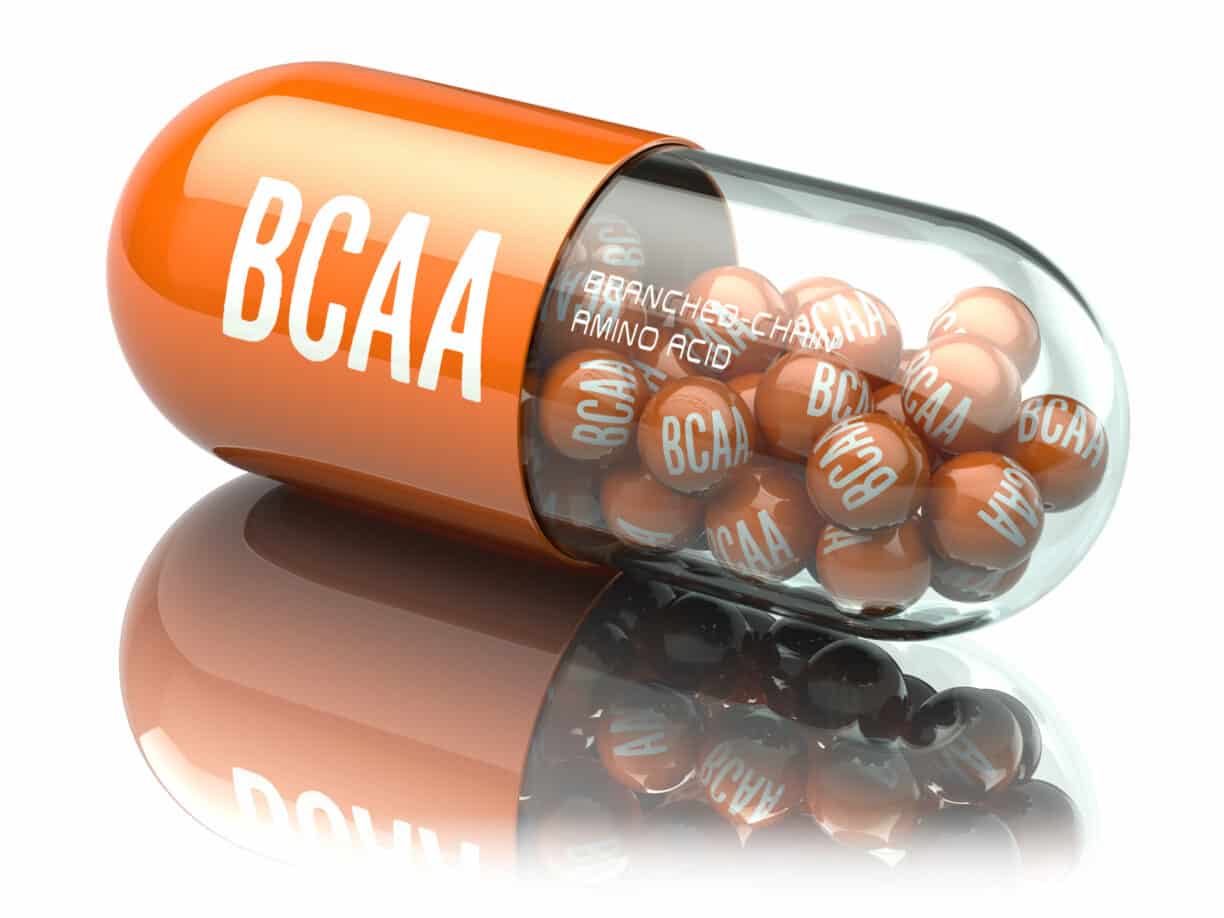Bodybuilders and athletes frequently use supplements containing branched-chain amino acids (BCAAs) to increase muscle development and performance.
The multitude of unique proteins in the human body comprises 20 distinct types of amino acids.
Nine of the 20 amino acids are essential, meaning your body cannot produce them, and you must consume them in your diet.
Three essential amino acids—leucine, isoleucine, and valine—are branched-chain amino acids (BCAAs). Their chemical composition is described by the phrase “branched chain.”
Let’s explore all the fascinating details and benefits of BCAAs in the material below.

Benefits of BCAA’s
Branched-chain amino acids are vital nutrients that promote the metabolism of muscles and are crucial for synthesizing the protein found in muscle tissue.
Branch-chain amino acids (BCAAs) can be used orally as supplements by athletes and bodybuilders to aid in exercise recovery and improve athletic performance.
The benefits of BCAA’s are listed below:
- Activate muscle growth
- Relieve painful muscles
- Reduced tiredness after exercising
- Stop muscle breakdown
- Increasing your appetite if you have cancer or are underweight
- Treat certain brain disorders
How does BCAA Help you Build Muscles?
- Increase Muscle Growth
The primary usage of BCAAs is to stimulate muscular development. Leucine, a BCAA, boosts the body’s specific pathway for muscle protein synthesis, which is the process of building muscle.
Following a resistance training session, participants in a study who drank a beverage containing 5.6 g of BCAAs experienced a 22 percent greater increase in muscle protein synthesis than those who drank a placebo.
Therefore, BCAAs are crucial for gaining muscle. Your muscles, however, need all the necessary amino acids.
2. Prevents Muscle Deterioration
BCAAs can guard against muscle loss or deterioration. Proteins in muscles are continually degraded and regenerated (synthesised).
The ratio of muscle protein production to breakdown regulates how much protein is in the strength. When protein breakdown outpaces muscular protein synthesis, muscle wasting or breakdown occurs.
Of the necessary amino acids in muscle proteins in humans, BCAAs make up 35%. The entire amount of amino acids your body needs comes from them in a percentage of 40.
To prevent or reduce the course of muscle wasting, BCAAs and other necessary amino acids must be supplemented.
When people with muscle atrophy take BCAA supplements, protein breakdown is stopped.
3. Decreases Muscle Soreness
According to some studies, BCAAs may lessen post-workout muscular pain.
It’s usual to experience soreness for a day or two following a workout, mainly if your fitness regimen is new. Delayed onset muscle soreness (DOMS), which appears 12 to 24 hours after activity and lasts for up to 72 hours, is the name for this discomfort.
Although the specific aetiology of DOMS is unknown, experts think that little muscle rips after exercise are to blame.BCAAs have been demonstrated to lessen muscle damage, which could reduce the duration and intensity of DOMS.
According to one study, those who took BCAA supplements before performing squats had less DOMS and muscular tiredness than those who took a placebo.
Sources of BCAAs
Foods and whole protein supplements both include BCAAs.
It is better to obtain BCAAs from sources of complete protein since they have all the necessary amino acids.BCAAs are widely distributed in various diets and whole protein supplements.
Most people already get adequate protein from their diets, so BCAA supplements are often unneeded.
Several foods high in protein include effective BCAA content. The advantages of BCAA supplements are unlikely to increase if you eat a sufficient amount of protein.
The recommended foods to eat to get BCAAs are:

- Proteins from whey, milk, and soy
- Corn
- Corn
- Lima beans with baked beans
- Chickpeas
- Lentils
- Whole grain
- Brown rice
- Cashews, Brazil nuts, and almonds
- pumpkin seeds
- Supplements
When to take BCAA’s?
Close to your workout is the best time to take BCAA. Before doing exercise, consume 6 to 8 grams. Include a protein or carbohydrate with it. You can take it after working out to stop muscle deterioration and promote quicker muscle recovery.
How To Use BCAA’s
The typical daily serving size for BCAAs is 5 grams. Consuming the BCAA supplement in the recommended 2:1:1 ratio—3 mg of leucine, 1 gm of isoleucine, and 1 gm of valine—is crucial. The best BCAA supplement to take before working out.
When taking a BCAA supplement, you can follow the 3:1:1 ratio, adding extra leucine when working out hard. Keep taking these BCAAs post-workout to start protein synthesis.
Bottom Line
Leucine, isoleucine, and valine are the three essential amino acids that make up the branched-chain amino acids (BCAAs).
Since they are vital, your body cannot create them independently, and you must get them through food. It’s been demonstrated that BCAA supplements help with muscle growth, tiredness reduction, and soreness relief.
In a hospital context, they have also been used successfully to lessen the signs of liver illness and to stop or slow down muscle atrophy.





